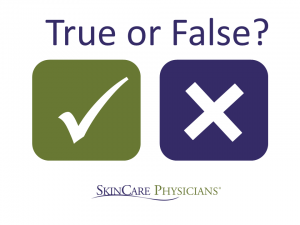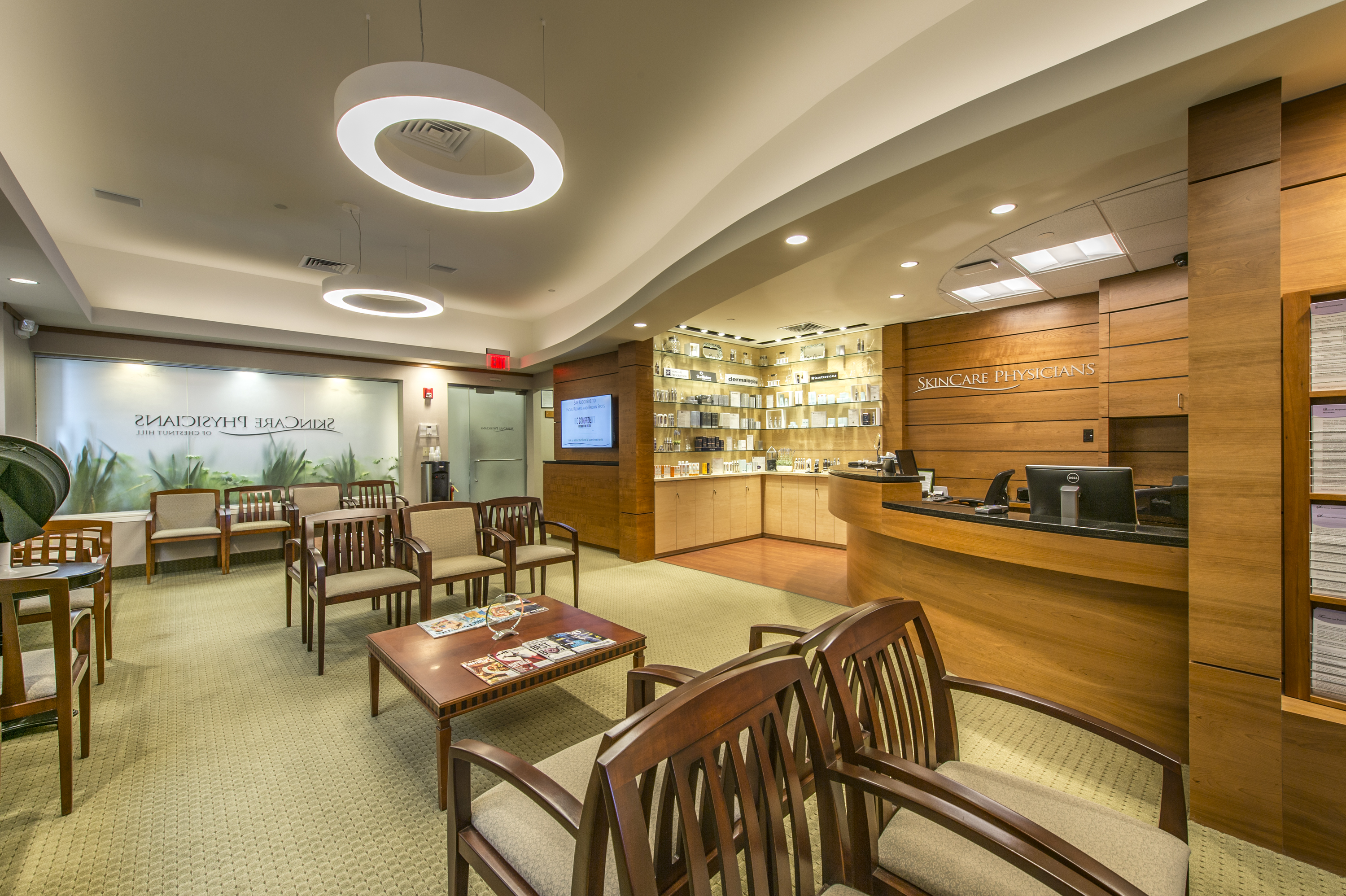The truth about common skin care myths
 There can be many misconceptions about skin and skin care. As dermatologists at SkinCare Physicians, we often hear the same beliefs from our patients in the Boston area, so shedding some light on these may be helpful to you, your families, and your friends.
There can be many misconceptions about skin and skin care. As dermatologists at SkinCare Physicians, we often hear the same beliefs from our patients in the Boston area, so shedding some light on these may be helpful to you, your families, and your friends.
Skin Myth #1: My makeup/moisturizer contains spf, so my skin is protected all day
Many people wear a daily moisturizer or makeup that contains sunscreen, which is a healthy habit to protect the skin from UV rays on a routine basis. However, don’t be fooled into thinking you are protected all day. The sunscreen in moisturizers and makeup only lasts 2 to 3 hours, just like standard sunscreens do. So if you expect that you will be out in the sun for longer than 2 to 3 hours, be smart and reapply.
Skin Myth #2: All acne is the same
There are many different types of acne, and recognizing what type or types someone has helps determine what treatment will be most effective. Certain acne lesions called comedones will respond best to prescription creams and the sooner they are treated the better that they respond. Another common type of acne is adult onset acne in women. This type of acne is often treated very effectively with prescription treatments that specifically target this variety of acne.
Skin Myth #3: My dry flaky winter skin must need more exfoliation
Many people are tempted to exfoliate their skin the more dry or flaky it may feel. On the contrary, skin can become rough or flaky as a result of being overexfoliated, which can then become a vicious cycle. In this situation, skin needs more moisture to become rehydrated. Limiting exfoliating products and switching from a moisturizing lotion to a cream and increasing it from daily to twice daily can make a dramatic difference.
Skin Myth #4: Darker skin tones are not at risk for skin cancer
People with darker skin tones have more pigment in their skin to protect them from much of the damage from UV rays, but they are still at risk for skin cancer. Squamous cell carcinoma is the most common form of skin cancer in African American skin, and basal cell carcinoma in Hispanic skin types, but melanoma occurs as well. Melanoma can also occur in areas that are not sun exposed. Thus people of color need to monitor their skin for new or changing skin lesions.
These are only a few of the skin beliefs we hear in our exam rooms at SkinCare Physicians. Share with us your belief about skin or skin care in the comment section, and we will tell you if it is true or a misconception.



Leave a Reply